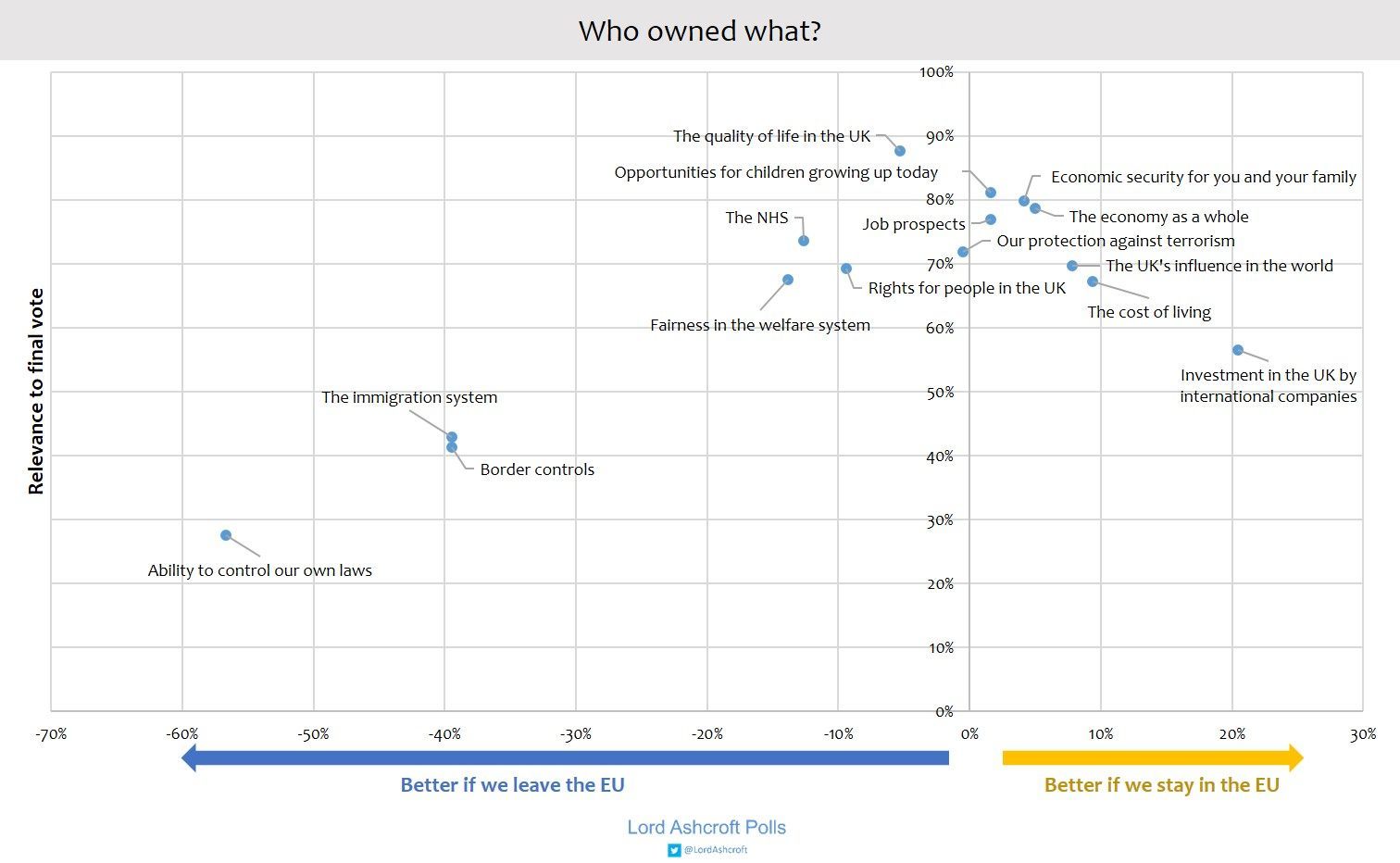Now, it would of course be idiotic to say that immigration was not a factor. Indeed, it would be hard to disprove the thesis that, in a near 50-50 split, immigration was a crucial factor. But Leave had much more going for it than that, as we shall see.
The answer to this question has to be found in the data. Lord Ashcroft has a typically fascinating (and suitably large) exit poll here. Let's look first at the chart below (original here). This shows that immigration was a much less salient consideration than all sorts of other matters, such as the NHS, the economy and terrorism. All of these things, where the Leave/Remain arguments were more finely balanced, were considered materially more important than immigration.

(The chart shows that Remain won the economic argument. Tim Harford can relax - the economists' message got through, but so did several other messages too. As the good hedonic economists they clearly are, the people of Britain were well able to distinguish between the economy, both national and personal, and quality of life generally - and Leave won the latter argument. There is nothing irrational about voting to be poor and uninfluential but happy.)
Lord Ashcroft also asked what the main reasons for voting were. His data makes it clear that the main reason given by Leavers for was the principle that decisions for the UK should be taken in the UK. (For Remainers, fear of the risks of leaving were the main factor: let no one say that Project Fear was a stupid idea.)
So I would put it this way. Vote Leave - Take Control: that was the slogan, that was the website - and it seems to have been the Leavers' main motivation too. Control over many things - immigration being one of them, no doubt - but control over all the UK's decisions.
Here (and do read the whole link), from someone who is not terribly sympathetic to Leave (or terribly good at spelling), is a plausible analysis:
"In this context, the slogan ‘take back control’ was a piece of political genius. It worked on every level between the macroeconomic and the psychoanalytic. Think of what it means on an individual level to rediscover control. To be a person without control (for instance to suffer incontinence or a facial tick) is to be the butt of cruel jokes, to be potentially embarrassed in public. It potentially reduces one’s independence. What was so clever about the language of the Leave campaign was that it spoke directly to this feeling of inadequacy and embarrassment, then promised to eradicate it. The promise had nothing to do with economics or policy, but everything to do with the psychological allure of autonomy and self-respect. Farrage’s political strategy was to take seriously communities who’d otherwise been taken for granted for much of the past 50 years."
So let's not tell ourselves that Brexit was all about immigration. It wasn't. It was about control. Perhaps entirely illusory control, perhaps a mis-sold mirage of control that could never be obtained, but control nonetheless. The British people voted for British control over decisions affecting British people. We might be a nation of idiots, Mr Parris, but not immigration-obsessed ones.
No comments:
Post a Comment